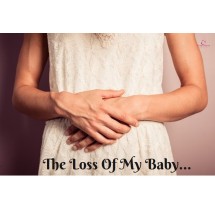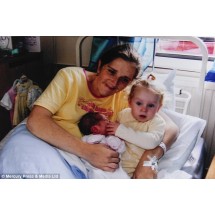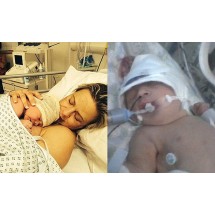
It is not easy to comfort a friend who had a miscarriage, especially when the feelings and situation for each woman are unique. We think we have to say something that makes sense and bring comfort to her, but at times our words come out wrong.
Here are twelve things never to say to a woman who had a miscarriage and tips on what you can do instead.
#1 Good thing it is early in the pregnancy
This may seem to be a logical thing to say but to the mother who has lost her baby, the sadness is there whether or not it is early or late in the pregnancy. Never assume that your friend will be comforted that she has lost her baby early instead of later in the pregnancy; after all, one doesn’t go into pregnancy expecting to have a miscarriage. The emotional effect is strong to a mother, regardless of the stage of pregnancy.
#2 It is fated
This offers little comfort as knowing it is fated (and that is a huge assumption to make) does not help to explain why it is so. The ambiguity does not help when one is dealing with grief and further emphasizing that is of no comfort at all.
 #3 God has your baby now
#3 God has your baby now
Be very careful with your words when bringing in religion, especially if your friend does not share the same faith. It may be mistaken by your friend that you are viewing her miscarriage as a chance for you to share your faith, something that she may not want to think about.
#4 Do you think it was something you did?
Many women shared that they underwent a phase of guilt and doubt, wondering if it was something they ate, drank or did. There is no need to add fuel to the fire by asking the woman who miscarried what it was she did.
#5 Never mind, you can still get pregnant again
Unless you know your friend’s health and ability to conceive very well, you do not know if it is true. There are many women whose pregnancies do not come easily. You also do not know whether this miscarriage will affect the next pregnancy. Even if it is true, the ability to get pregnant again does not make this miscarriage easier to go through.
#6 If you really want a baby, try again soon
This is one of those things that really put people off. First it imply that maybe the miscarriage occurs because the baby who is lost is not one that the parents really want. Secondly, babies (and human lives) cannot just be replaced.
#7 Now you know you can get pregnant
So? Your friend has just lost a baby and yes, she knows she can get pregnant (but can’t keep this baby). Once you say something like that, likely your friend will feel put off by your reasoning because it doesn’t make sense at all. It is also of no comfort to know you can get pregnant when you just lost a baby.
#8 It is very common
Yes, but that does not mean that your friend will not be hurt or saddened. Birth, life and death happens to everyone but no death is “common”. It is a personal loss and bringing statistics in does not comfort.
#9 Maybe because you are too old
Your friend needs comfort, not medical theories on why it happened. You do not know why (maybe even doctors don’t) and speculating and saying it out loud that old age causes the miscarriage is very hurtful.
#10 You will feel better over time
You do not know and it is presumptuous to assume that. Your support is to help your friend feel better and not tell her to feel better.
#11 You already have a child
This offers no comfort as every child is unique and it is not about numbers. Having one child does not make the loss of another baby easier.
#12 It is better than having a baby born with health problems
Never ever say that. There are so many assumptions behind this statement, including assuming that a miscarriage means that the baby has developmental problems and assuming that your friend will not love her baby with health problems.

What You Can Do Instead
It is best to keep theories of the miscarriage to yourself and simply be there for your friend. Some people may think that their friend needs space and choose to leave the friend alone – but that does not allow you to be there to support her. Apart from acknowledging the loss (by saying you are sorry for her loss), you can also do the following:
#1 Ask how you can help
For instance, you can help to bring dinner or take care of grocery errands. If your friend has another child, you can also offer to accompany the child so that your friend has time alone with her spouse.
#2 Listen
Be there and listen to your friend. There is no need to provide answers but simply be there and offer hugs and shoulder to cry on.
#3 Show up
Your friend may not want anything or to hang out. Consider dropping by with chocolate, cake or other treats you know your friend usually loves.
#4 Don’t forget the father
Be mindful that both the father and the mother are dealing with the loss of their child. Do not dictate what your friend’s spouse should be doing to comfort her.
#5 Acknowledge the baby as a person
In your conversation and time with your friend, acknowledge the baby lost as a person. For instance, use his/ her name and let your friend talk about her baby.
It is always straightforward on how you can help a friend grieving the loss of her baby. It is important to be there for your friend but remember not to push your friend to get over it.
Written by Mei






